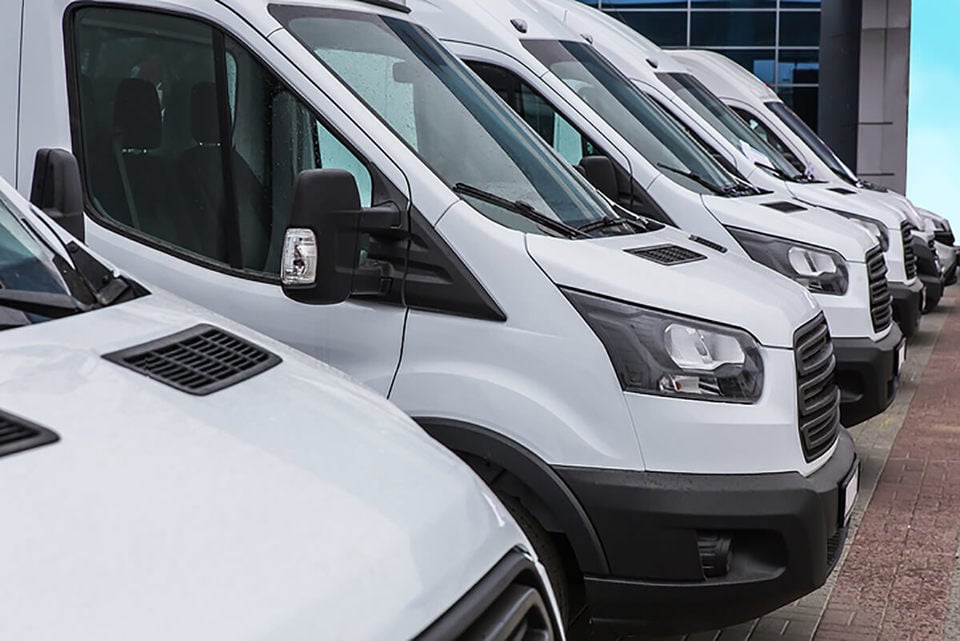The SMMT has called for “continuity” from the new Conservative Government to help support a robust van sector.
“The industry is doing well, business confidence is strong and customers are buying vehicles in increasing numbers,” said Mike Hawes, SMMT chief executive.
“We would like to see greater investment in manufacturing based on the UK being competitive, support for the supply chain and reform of Europe.”
Hawes predicted that van registrations will remain “reasonably strong” this year, but believes the truck sector will be more uncertain.
“It was affected last year by the move to Euro 6. The first quarter was depressed so it will be more stable this year.”
Fleets operating trucks have told Commercial Fleet that engines conforming to Euro 6 regulations have hit their fuel consumption by 12-14%, with one saying: “There is a trade-off between air quality and CO2 emissions – you can’t have both.”
Hawes dismissed calls in the specialist rail media for the Government to stop unfairly subsidising road transport – their argument is that it pollutes more than rail, causes congestion and is more expensive on a cost-per-mile basis.
“Modal shift is hard to quantify; there will always be a road element to the final destination, so it’s down to cost,” he said. “Vehicles do produce more emissions than rail but you have to deliver at an affordable rate for business to be competitive.
“Car plants are close to the rail infrastructure but they have struggled to make it work.”
Hawes also does not believe that a near doubling of the national van parc over the next five years – Government forecasts are for the number of vans on the road to rise from 3.3 million to six million by 2020 – will result in greater congestion on the roads.
He points to a rise in out-of-hours deliveries which were so successful in London during the Olympics.
“An increase in telematics and connectivity will increase the road network capacity and efficiency of business,” Hawes added. “Absorbing that increase in trucks and vans can have a positive effect.”
The move to a connected road network will be driven by a mix of Government and industry investment, with vital input from the communications and technology sectors.
However, there are concerns over the use of personal data which the previous Government had yet to address.
“The Government isn’t sure what role it should take. It doesn’t want to legislate to inhibit development.
“But where is the line for safeguards and standards, while protecting privacy? It needs a multi-stakeholder approach,” Hawes said.
The SMMT’s priorities this year are to invest more effort into promoting the UK manufacturing and supply chain internationally, to support the move to greater car and road connectivity; to continue pushing for future investment into research and development; and to ensure that the UK remains a competitive place for the automotive industry.
Van maintenance key to prevent licensing
The SMMT launched a van maintenance campaign at the CV Show in April to help van operators take better care of their vehicles, and to keep their drivers and other road users safe.
Almost two thirds (63%) of the 10,800 vans stopped by the Driver and Vehicle Standards Agency (DVSA) at the roadside each year have a serious mechanical defect, while more than nine out of 10 (93%) are overloaded. Around half of all vehicles stopped posed a road safety risk and were subsequently taken off the road at a cost to their owners of some £4,000 per day.
Meanwhile, 50% of vans also fail their annual MOT test first time, compared with just 22% of HGVs, whose operators are bound by strict and costly licensing rules.
SMMT is urging a step-change in safety improvements to ensure van owners meet self-regulatory requirements and avoid the risk of fines and further legislation, such as operator licensing being imposed. To help this process SMMT has published van safety guidance at smmt.co.uk/vansafety.
Although there has been no move so far to apply the licence to vans, the regulations and safety records around light goods vehicles are facing increased scrutiny, according to the SMMT. Industry is keen to ensure that a system of self-regulation is maintained so that costly licensing can be avoided, so long as safety records are improved. At HGV fee levels, the collective industry bill for licensing for vans could stretch to as much as £2.1 billion.
Mike Hawes said: “Britain’s 3.2 million vans are essential for the smooth running of the economy, but their recent safety record is a matter of concern. Vans rack up huge distances and endure significant wear and tear, so regular servicing is essential.
“We’re launching a new campaign to promote maintenance so businesses can ensure their vehicles are safe, protecting their drivers and other road users.”




















Login to comment
Comments
No comments have been made yet.